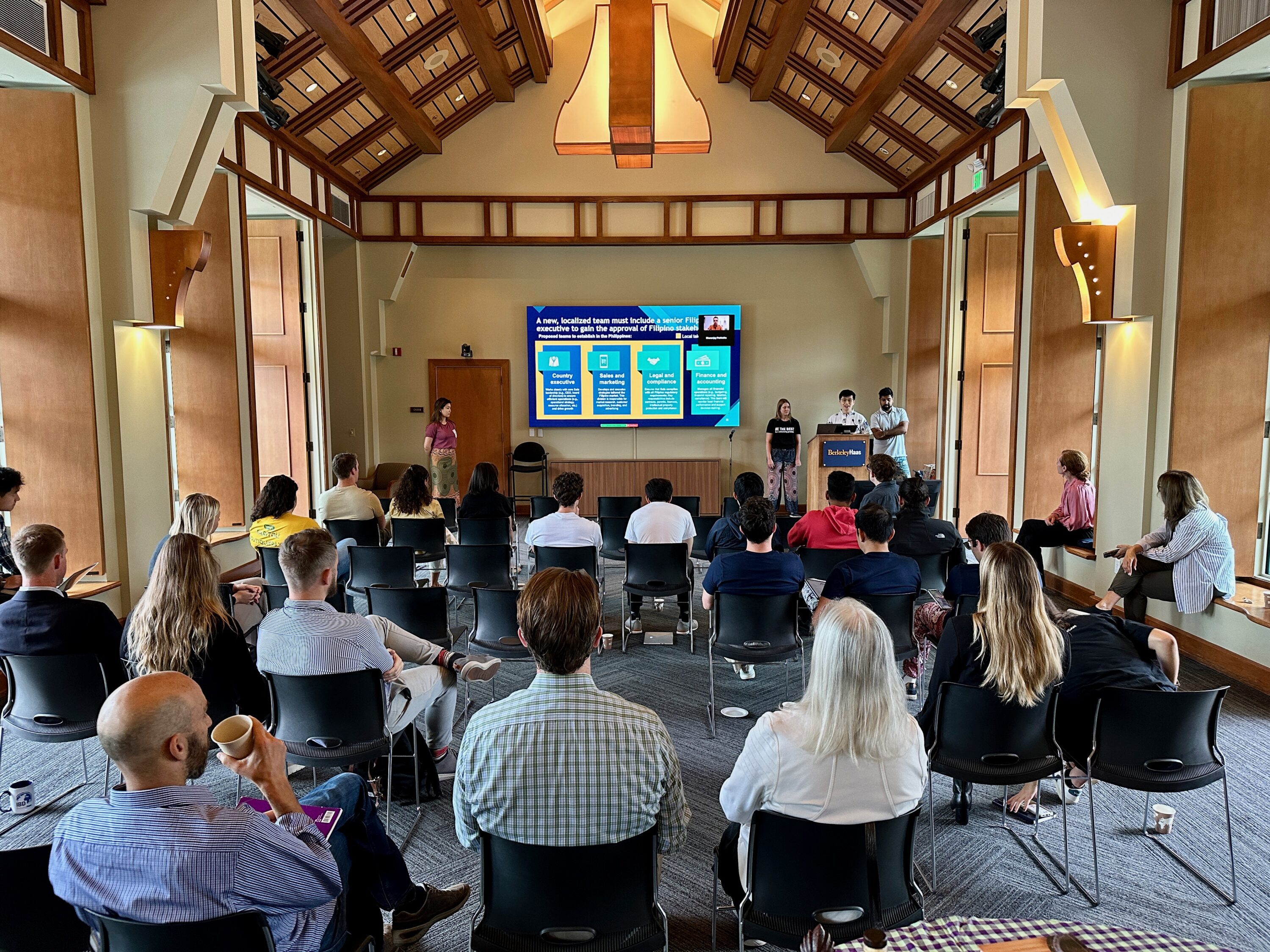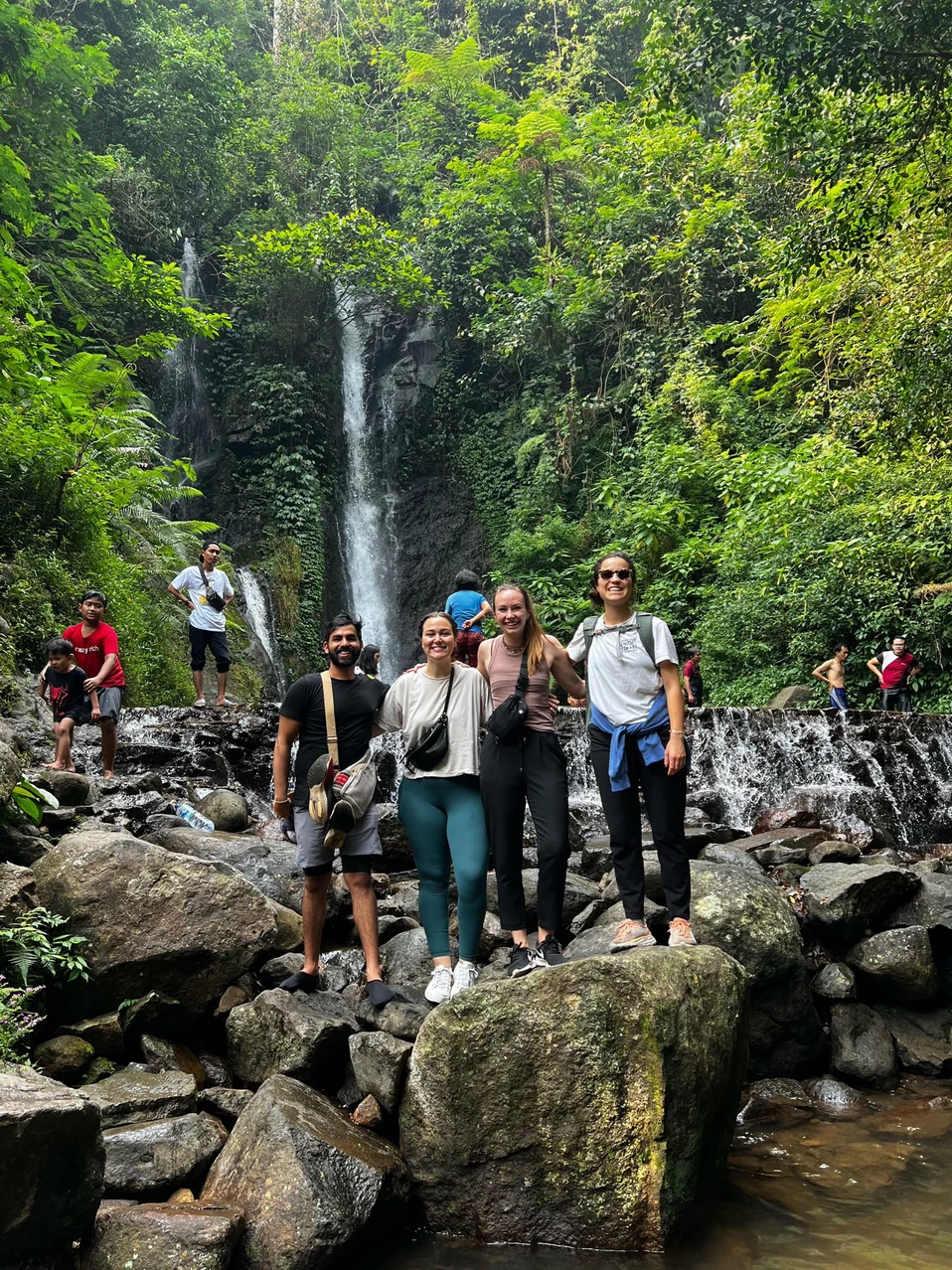Welcome to Emily Lapham, MBA 22, IBD Graduate Student Instructor
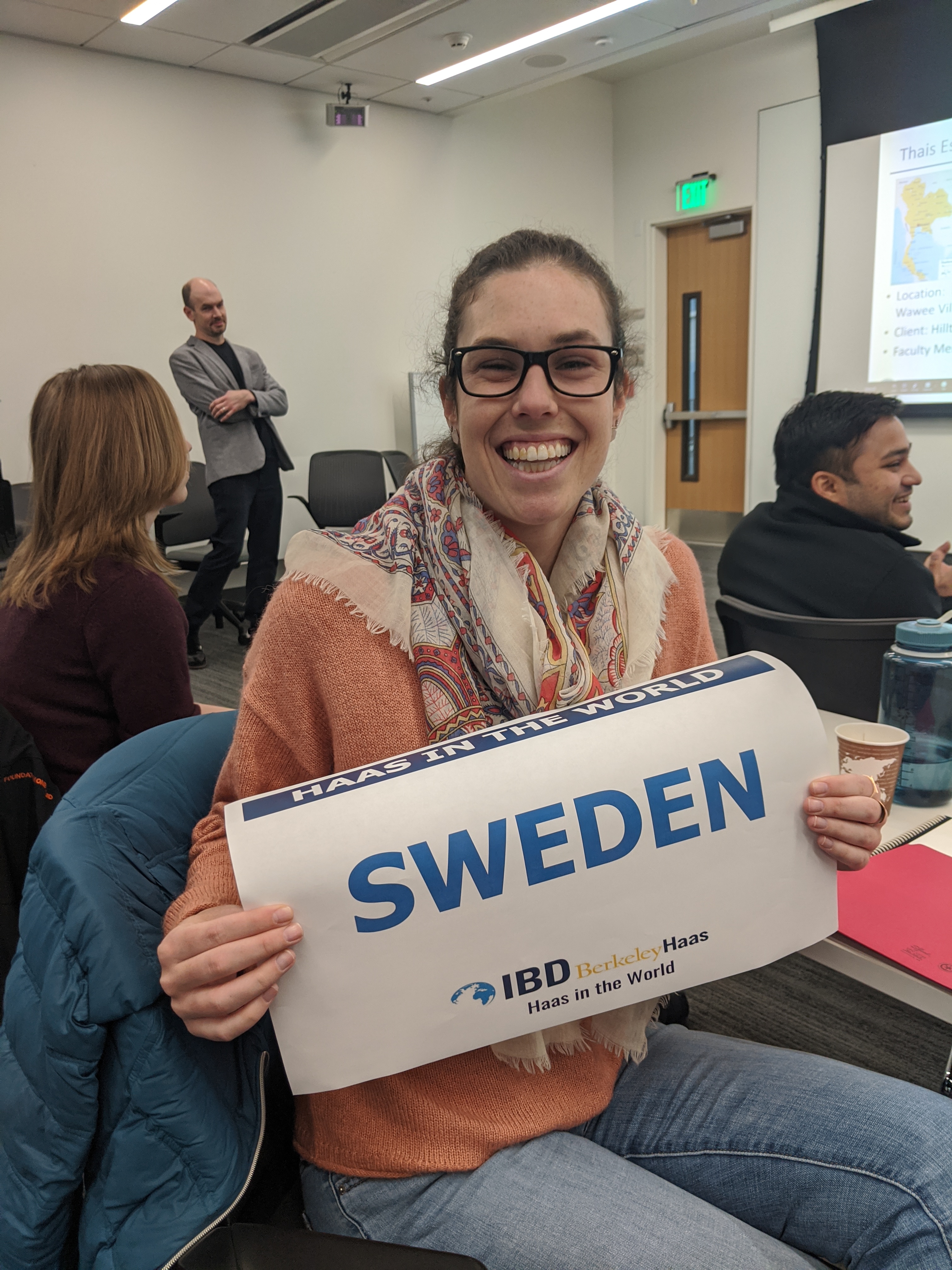
The current IBD program welcomes former IBD student Team Lead and second year MBA student Emily Lapham as our spring semester Graduate Student Instructor (GSI). As GSI, Emily works closely with IBD Faculty Director Whitney Hischier to improve the learning experience of our students, providing help as needed in teaching the IBD course.
In addition to bringing her past work experience to the GSI position, Emily provides insight from her role as a student Team Lead in last year’s IBD program. As a Team Lead, Emily worked hard last spring to manage a successful IBD consulting project, including a high level of collaboration with four MBA teammates and the overseas project client. IBD interviewed Emily recently, asking her to share what she gained from being a part of the IBD program, and what she hopes to bring to her role as the course GSI. Please click here to read the interview with Emily.
IBD Interviewer: Tell us about your background and what you were doing before coming to Haas to get your MBA?
Emily Lapham:
Prior to Haas, I lived and worked in the Washington, D.C. area as an emergency management and national security consultant – essentially helping government organizations, colleges and universities, and companies engage in scenario and disaster planning and stress testing their capabilities. As someone with an academic and professional background in economics and national security, I enjoyed being in the D.C. region and working alongside professionals interested in helping build up capabilities in our communities across the nation.
IBD Interviewer: Why did you want to be a part of the IBD program, especially in the Team Lead Role?
Emily Lapham:
Early on in my career I had the chance to work in the international business operations group of my company, and I absolutely loved the nature of the work and engaging in complex problem solving across different countries and cultures. IBD provided the perfect opportunity to get back to working cross-culturally and do so in a new context – I knew whatever IBD project I landed would likely provide very different challenges and dynamics than what I faced in my previous work, and that was exciting! The Team Lead position felt like a great fit as I would be able to bring my experience engaging with company executives from global offices, but it was also a stretch role. As someone who entered Haas relatively early on in my career, I knew I wanted to grow my leadership skills and gain hands-on experience in project management.
IBD Interviewer: What was your biggest takeaway from the IBD experience? Did anything surprise you?
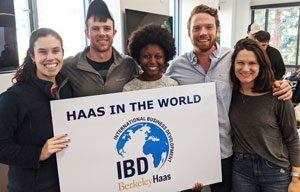
Emily Lapham:
Boy, was I right about IBD and the Team Lead position providing dynamic challenges and forcing me out of my comfort zone! As a member of the 2020 cohort, we had to completely revamp our project plan and modify the project scope about six weeks into the semester. My biggest takeaway was the importance of communication – there was so much uncertainty at the time about how to conduct the project completely remotely and what our client organization’s future even looked like; but consistent communication enabled our team to successfully deliver on our project objectives and still manage to develop a great relationship with the client. Taking time to adapt the project plan to the new reality even provided some benefits – we were able to take a deep breath and evaluate what was working so far and where we needed to change direction. These projects can be so fast-paced that sometimes it’s difficult to remember to take the time to consistently assess and evaluate progress, or openly discuss changing directions in the face of new information.
IBD Interviewer: What advice do you have for current IBD teams and students?
Emily Lapham:
Challenge your own thinking and enjoy the process! Working with clients who are living and working in completely different environments than ours presents an exciting opportunity to learn and gain insight into new ways of problem framing, problem solving, and communicating that we only experience outside of traditional corporate or other professional cultures we’re used to. And don’t forget to enjoy what you are doing along the way. Get to know your teammates and clients as colleagues, but also as people. IBD projects are challenging, but what you will remember most from the semester (besides some of the new consulting tools!) are the moments with your team and client when you have an aha moment, develop a really powerful insight, or learn something completely new from one another.
IBD Interviewer: Why did you want to be a GSI for the IBD program this year? What do you think the biggest challenge or opportunity of the position will be?
Emily Lapham:
I am the type of person that truly enjoys giving back to people, communities, or organizations that make a significant impact in my life, and holding the GSI role and working with the wonderful IBD teaching and admin staff felt like a great opportunity to do just that. The position will be challenging in the sense that (due to COVID) I’m not able to sit down in a room with project teams and help them with hands-on brainstorming, or have impromptu chats with team members about the biggest challenges or wins of the day. But so far we have been able to recreate at least some of that project-specific support with Zoom breakout rooms; and as I continue to get to know the IBD students better, I look forward to all of the opportunities to work with them and learn from them too!
IBD Interviewer: What are your plans following graduation? Do you think you will be able to utilize any of the skills or experiences you gained from IBD?
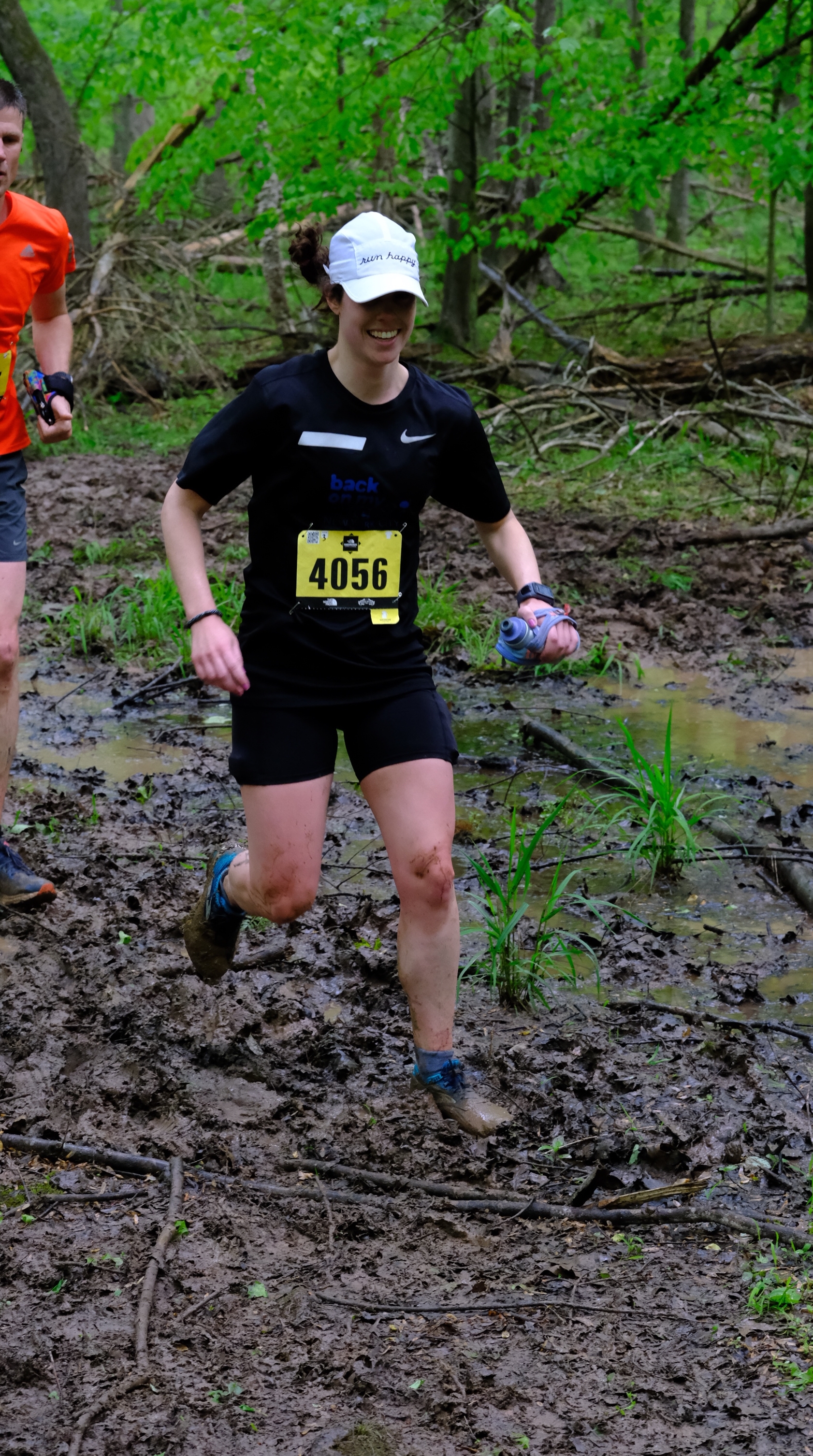
Emily Lapham:
There are still many question marks around my plans following graduation, but I am pursuing business strategy and/or operations roles at the intersection of workforce and community development, ideally with an innovative organization thinking about how to break down academic and career barriers for different communities. After my summer internship with a venture philanthropy that invests in social entrepreneurs in this space, and my IBD project working with a Swedish-based nonprofit also working with social entrepreneurs, I have become very interested in how social entrepreneurship can grow as a powerful force for good in economic development. My IBD experience really taught me how to think outside the box, and I hope to land in a role that encourages me to continue doing so.
But first, my partner and I are planning to travel (safely!) a bit around the Pacific Northwest and Mountain West regions this summer with our tent, our bikes, and our trail running shoes, spending as much time outdoors as possible!
End of Interview

